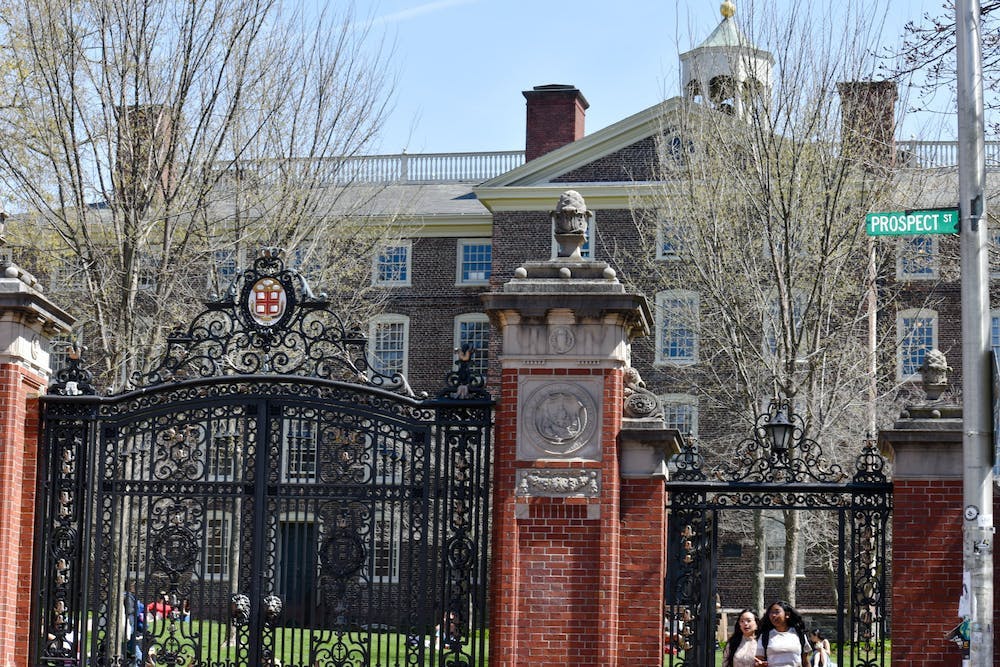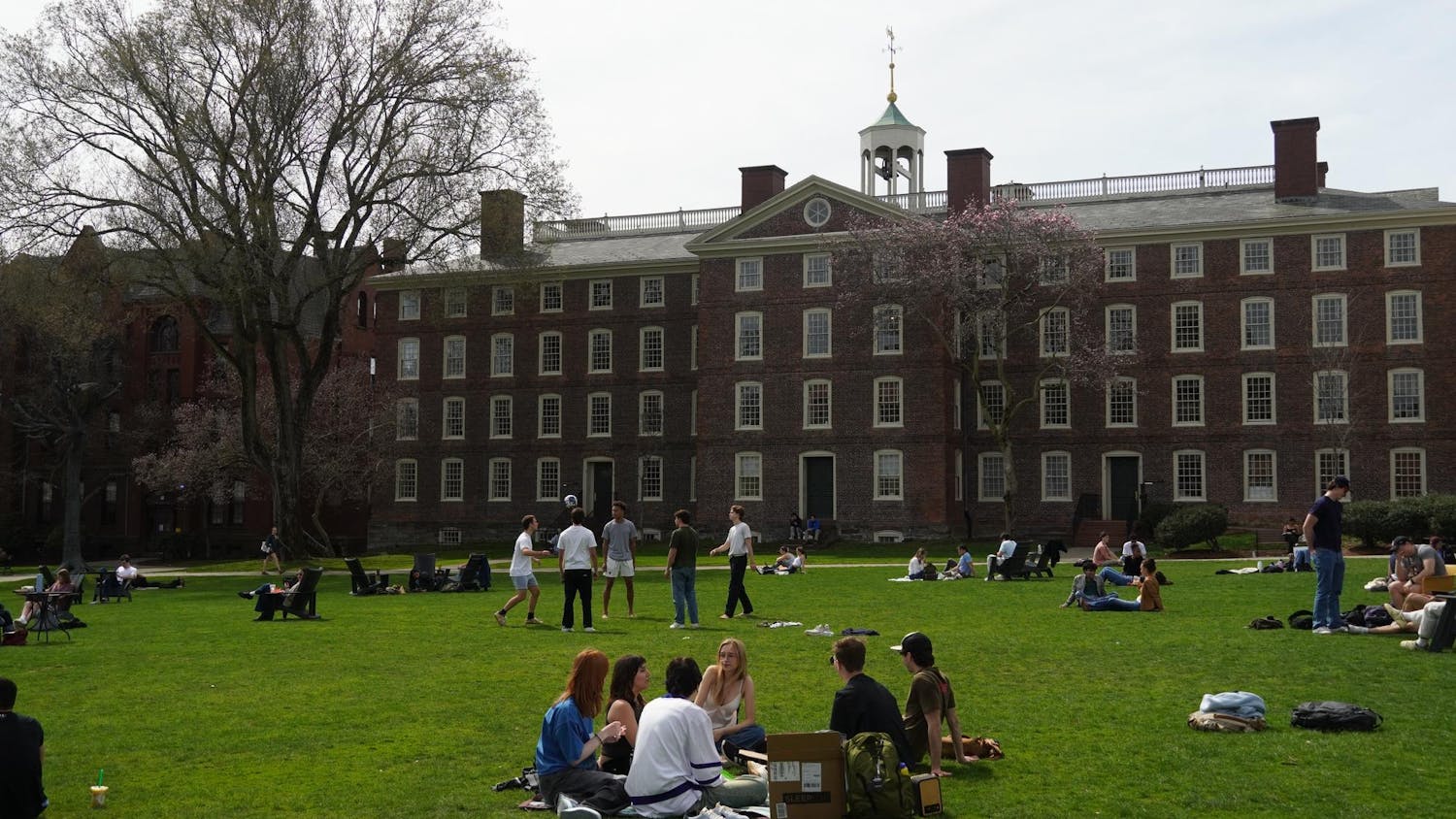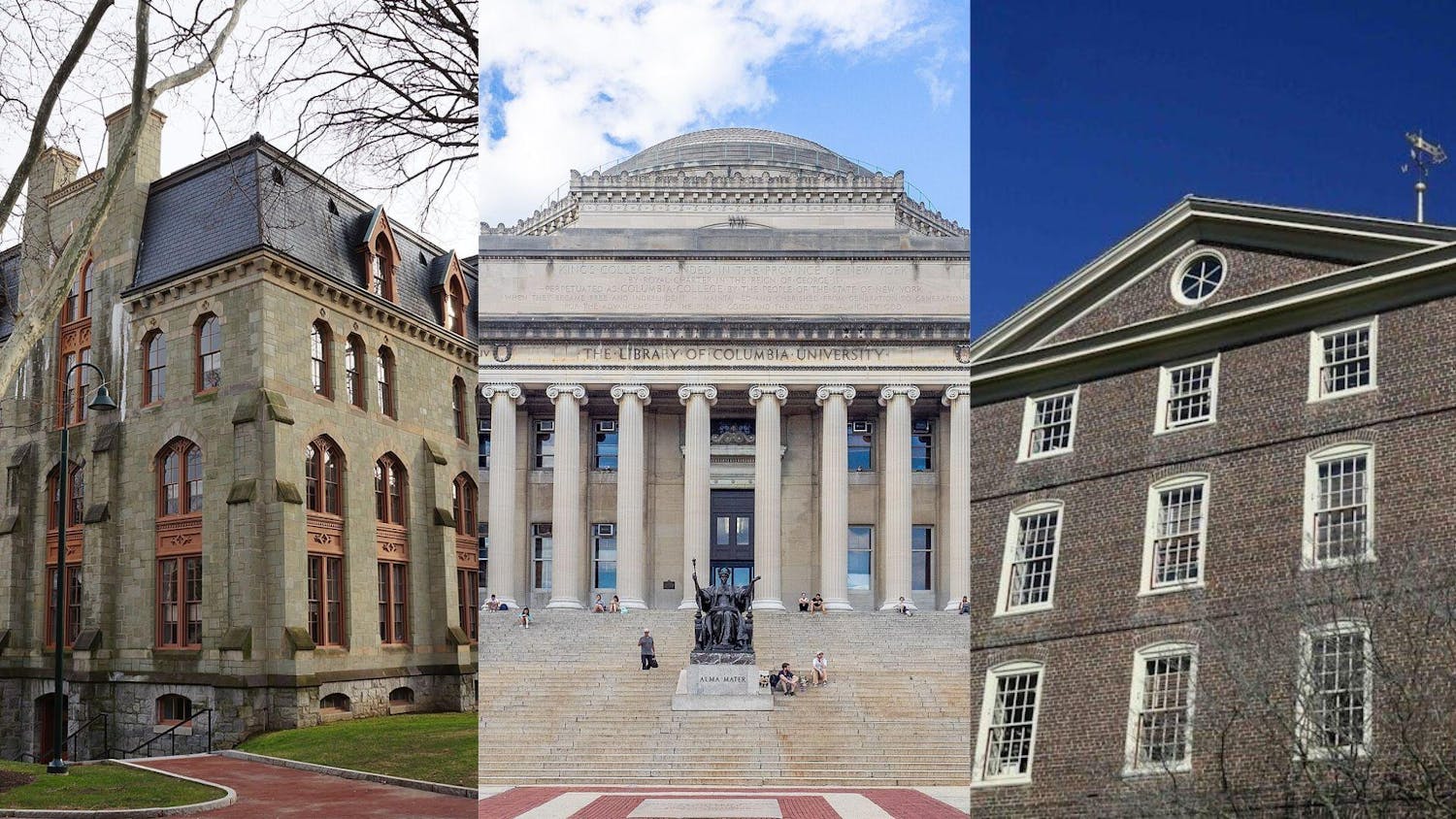On the heels of the Supreme Court’s landmark decision to restrict race-conscious college admissions and a nationwide upheaval of admissions policies, Brown is appointing an ad hoc committee to reexamine the University’s admission practices.
According to a Wednesday letter from President Christina Paxson P’19 MD’20 to University community members, the committee will examine admissions practices and data related to legacy preferences for students with “family connections” to Brown, standardized testing and early decision.
The committee, co-chaired by Provost Francis Doyle and Trustee Preetha Basaviah ’91 MD’95, will make recommendations to Paxson and the Corporation, the University’s highest governing body, before the start of next semester, according to the announcement. Any changes to application consideration would be implemented during the 2024-25 admissions cycle.
“This is an important moment for Brown to assess its admissions policies to ensure the University is fully realizing its educational mission and upholding its commitments to academic excellence, equity, access and diversity,” Paxson wrote in her letter.
The committee is composed of five Corporation members, four faculty members and Doyle. It also includes prominent voices on admissions practices, including John Friedman, professor of economics, who has researched the subject of legacy admissionsand their relationship to economic mobility.
The committee does not include representatives from the Enrollment Division, comprising the Office of College Admission and the Office of Financial Aid. It will, however, consult individuals in the division to produce an informed recommendation based on analysis of admissions data, according to Doyle.
“My plan would be, together with my co-chair, to pull together the appropriate experts across the University ecosystem,” he said. Current undergraduate students are also not present on the committee.
“This examination may involve highly confidential and sometimes very highly specific data about our students,” Doyle said. “We did not want to place our students in a conflicted situation.”
One of the committee’s tasks is to recommend whether to continue the University’s interim test-optional policy or to reinstate its standardized testing requirement. The current application cycle is the fourth consecutive year that score submission has remained optional.
As for eventual decisions regarding legacy admissions and early decision, Doyle said the committee has “no preconceived notions of what exactly we will do going forward.”
“I don't have a preview of exactly what the issue is on any of those three axes ahead of our dive into the data,” Doyle said.
Legacy preferences in admission have faced intensifying public scrutiny following the Court’s decision. In July, the Department of Education opened an inquiry into Harvard University’s use of the practice of legacy admissions following allegations that it violates Title VI of the Civil Rights Act of 1964. Several universities have recently eliminated the advantage, including Wesleyan University and Virginia Tech.
The University currently considers legacy status in admission practices, citing special consideration for applicants who are children of one or more alumni of Brown’s undergraduate program.
Of the newly matriculated class of 2027, 8% fit this criteria, according to Doyle — identical to the proportion that Associate Provost for Enrollment Logan Powell shared for the entire student body in late 2021, The Herald previously reported.
Earlier this year, Powell previously suggested harnessing legacy preference to increase the diversity of future classes.
Committee member Noliwe Rooks, professor of Africana Studies and chair of the department, has publicly supported the use of legacy admissions. Citing the increasing diversity of alumni classes, she said that eliminating consideration of familial ties would disadvantage legacy applicants of color: “It is pulling up the ladder behind them to not allow their kids to be legacy admits,” she told the New York Times.
In a metadata analysis of Ivy-plus institutions published by Opportunity Insights, a paper co-authored by committee member Friedman found that ending legacy preferences would slightly decrease the percentage of the student body from households in the top 1% of income earners.
The committee has “no intent” to focus on the consideration of applicants whose parents have donated large sums to the University, Doyle said.
Early decision admissions, another practice the committee is charged with examining, have proven less controversial — but colleges such as Virginia Tech have halted the separate process, citing pressures surrounding financial uncertainty when committing to a school.
“I see us looking at our current practices and understanding what's working, what's fair and appropriate with those mechanisms,” Doyle said, when asked about early decision and early action admissions. “We’re looking at some of our peers' practices as well to understand better whether or not there's something that is better suited to our mission, to the goals that we have and using them to inform the recommendations going forward.”
Both Doyle and Paxson pointed to the national dialogue on admission practices as reasoning for the committee’s formation. But Doyle also emphasized the independent nature of the committee's work.
“We will use our numbers, our data, our information to inform our own outcomes,” Doyle said. He added that the committee will share its findings at the “earliest possible juncture.”
“Brown remains incredibly and firmly committed to building and sustaining a diverse and inclusive campus community,” Doyle said. “That’s essential to our academic mission.”

Owen Dahlkamp is the managing editor of newsroom on The Herald's 135th Editorial Board, overseeing the paper's news operations. Hailing from San Diego, CA, he is concentrating in Political Science and Cognitive Neuroscience with an interest in data analytics. In his free time, you can find him making spreadsheets at Coffee Exchange.
Haley Sandlow is a contributing editor covering science and research. She is a junior from Chicago, Illinois studying English and French.





